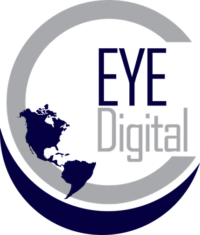Introduction
In today’s digital age, where information is easily accessible and consumer choices abound, healthcare marketing has emerged as a pivotal aspect of the industry. Gone are the days when medical services could rely solely on word-of-mouth referrals. With the increasing importance of patient-centered care and the proliferation of online platforms, healthcare providers must master the art and science of marketing to reach, engage, and serve their patients effectively.
The Unique Challenges of Healthcare Marketing
Healthcare marketing presents distinct challenges due to the sensitive nature of the industry. Ethical considerations, regulatory constraints, and patient confidentiality must be meticulously navigated. Striking a balance between promoting services and respecting patient privacy is a delicate endeavor that requires a deep understanding of both marketing principles and healthcare regulations.
Understanding the Target Audience
Effective healthcare marketing begins with a thorough understanding of the target audience. Patients today are more informed and proactive about their health decisions, often turning to the internet for research before seeking medical services. Tailoring marketing strategies to address their concerns, needs, and preferences can help build trust and credibility.
Digital Transformation of Healthcare Marketing
The digital revolution has transformed healthcare marketing dramatically. Online platforms and social media offer healthcare providers unprecedented opportunities to connect with patients. An engaging and informative online presence can establish a healthcare organization as an authority in its field, while interactive content can foster patient engagement and education.
Content Marketing for Healthcare Professionals
Content marketing has become a cornerstone of successful healthcare marketing strategies. By creating and sharing valuable, relevant, and accurate content, healthcare providers can position themselves as reliable sources of information. Blogs, articles, videos, and infographics that address common medical questions, provide wellness tips, and clarify complex medical concepts can not only attract patients but also establish credibility.
Search Engine Optimization (SEO) for Healthcare Websites
In the digital realm, a healthcare provider’s website often serves as the first point of contact for potential patients. Employing effective SEO techniques ensures that the website appears prominently in search engine results when users seek information about relevant medical services. Incorporating relevant keywords, optimizing website structure, and regularly updating content can enhance the website’s visibility and accessibility.
Harnessing Social Media
Social media platforms have proven to be powerful tools for healthcare marketing. By engaging with patients through platforms like Facebook, Instagram, and Twitter, healthcare providers can foster a sense of community, address concerns, and share educational content. Utilizing visuals, patient testimonials, and live sessions with medical experts can humanize the healthcare experience and build strong patient-provider relationships.
Personalization and Patient Engagement
One of the most significant shifts in healthcare marketing is the emphasis on personalized patient experiences. Data analytics and patient relationship management systems allow healthcare providers to tailor their messaging to individual preferences and needs. This level of personalization not only enhances patient engagement but also improves patient satisfaction and loyalty.
Ethical Considerations and Transparency
Healthcare marketing must be rooted in ethical considerations and transparency. Clear communication about services, costs, potential risks, and benefits is crucial. Overhyping treatments or making unrealistic promises can erode trust and damage an organization’s reputation. Honest and open communication builds trust and reinforces the patient-provider relationship.
Compliance with Regulations
Navigating healthcare regulations, such as HIPAA (Health Insurance Portability and Accountability Act) in the United States, is a critical aspect of healthcare marketing. Strict adherence to data privacy and security regulations is imperative to protect patient information and avoid legal consequences.
Conclusion
In a rapidly evolving healthcare landscape, mastering the art and science of healthcare marketing is essential for providers to thrive. A patient-centric approach, coupled with digital fluency, ethical considerations, and a commitment to transparency, can help healthcare organizations not only attract and retain patients but also contribute to the overall well-being of the communities they serve. By embracing innovative strategies and maintaining a focus on delivering high-quality care, healthcare providers can successfully navigate the complex world of healthcare marketing.

